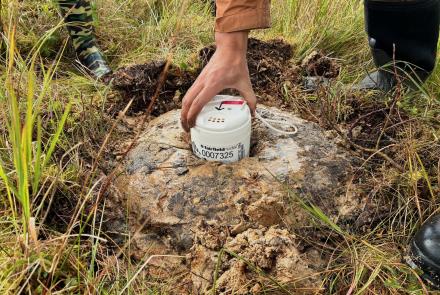Quality Time in Rat Country
Maybe because I hang out at the university and thus often observe students and teachers, I associate autumn with a great upsurge in parents' anxiety. Working (and studying) mothers and fathers worry about leaving their children with even the best day care, and agonize over whether so-called quality time can make up at all for the lack of quantity. I understand; I've been there too.
All right, fellow worried parents, since we find it necessary to risk our children's psychic health by entering the rat race, it seems fair to turn to a study of rats for some crumbs of reassurance. And among harassed lab rodents, at least, separation followed by quality time offers special benefits for rat youngsters.
This implication rises from research replicating and reviewing a 40-year-old experiment. The original study involved deliberately stressing newborn rats by removing them from their mothers for 15 minutes daily during their first few weeks of life. Instead of suffering under this unkind regimen, the young rats coped with the challenges of life in the laboratory a bit better than did their unbothered kindred. Tested with threatening situations, they stayed more calm (or, at least, produced less of certain stress hormones) than did rats that had not been subjected to forced removal from their mothers. They also explored strange surroundings more eagerly than did rats that had never been removed from their mothers.
The result of this experiment might seem to be that a bit of suffering is a good thing, at least for baby rats, or that subjecting even the youngest rats to unusual experiences expands the workings of their little brains. But when researchers at McGill University in Montreal repeated the study, they came up with a far different interpretation. Their conclusion: the mothers did it.
Now, in the original experiment, the scientists had observed that mother rats groomed and fussed over returned pups more than mothers did whose pups had never been ratnapped. The scientists hadn't made anything of this observation, but when the McGill team noticed the same fussy maternal behavior, they decided to follow up on it.
The fussed-over young rats showed the same enhanced curiosity and coolness under pressure as had the rats in the previous study---but so did unhandled rats whose mothers happened to be unusually solicitous of their offspring. About a third of mother rats apparently are naturally attentive, spending twice as much time grooming and licking their pups as average mothers do; that's about the same as all mothers whose babies were taken away briefly.
As adults, rats that had experienced this vigorous maternal attention showed blood and brain alterations that let them deal with stressful situations without getting anxious. They were especially comfortable, by rat standards, in exploring open spaces.
The McGill team sees this reaction as making ecological sense. Wild Norway rats, the ancestors of laboratory animals, occupy a huge diversity of habitats. If circumstances affect the mothers' behavior toward their offspring, and the mothers' behavior in turn affects their offspring so that they adapt better to those circumstances, the next generation has gained a survival advantage.
Of course, in nature baby rats aren't taken away and then returned to their mothers. But if times are tough, the mothers may have to spend a lot of time at work, so to speak, out foraging for whatever they can find to eat. That produces the same separation anxiety, perhaps, and the same exuberant grooming behavior when they return to their pups as when their pups are returned to them.
So, if you're a rat, it looks as if your pups will survive and thrive even though they've been separated from you, as long as you give them plenty of attention when you get back together. And if you're a human parent---well, be sure you give the kids lots of big hugs when you get home. Hey, it can't hurt.




